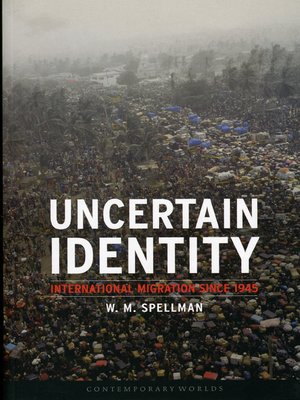Uncertain Identity
ebook ∣ International Migration since 1945 · Contemporary Worlds
By W. M. Spellman

Sign up to save your library
With an OverDrive account, you can save your favorite libraries for at-a-glance information about availability. Find out more about OverDrive accounts.
Find this title in Libby, the library reading app by OverDrive.



Search for a digital library with this title
Title found at these libraries:
| Library Name | Distance |
|---|---|
| Loading... |
Globalization is the defining phenomenon of the twenty-first century and migration is the cornerstone of its economic and social force. Uncertain Identity examines international movements of peoples over the past sixty years to show what migration patterns have meant to the economic and social systems of countries around the world.
W. M. Spellman chronicles how after 1945, migration patterns expanded in numbers of people and origin countries, due to overpopulation, poverty, violent conflicts, and the lowered costs of air travel. Uncertain Identity sets these patterns in the context of issues such as the impact of voluntary and forced relocation on the migrants and destination countries, the significance of south-to-north migrations, and recent enactments of restrictive immigration measures in developed nations. Spellman also considers temporary and refugee migrations and the ways in which refugees maintain cultural traditions despite their new environments.
An incisive study with global breadth, Uncertain Identity offers invaluable analysis for specialists in political science, sociology, and economics.
W. M. Spellman chronicles how after 1945, migration patterns expanded in numbers of people and origin countries, due to overpopulation, poverty, violent conflicts, and the lowered costs of air travel. Uncertain Identity sets these patterns in the context of issues such as the impact of voluntary and forced relocation on the migrants and destination countries, the significance of south-to-north migrations, and recent enactments of restrictive immigration measures in developed nations. Spellman also considers temporary and refugee migrations and the ways in which refugees maintain cultural traditions despite their new environments.
An incisive study with global breadth, Uncertain Identity offers invaluable analysis for specialists in political science, sociology, and economics.







